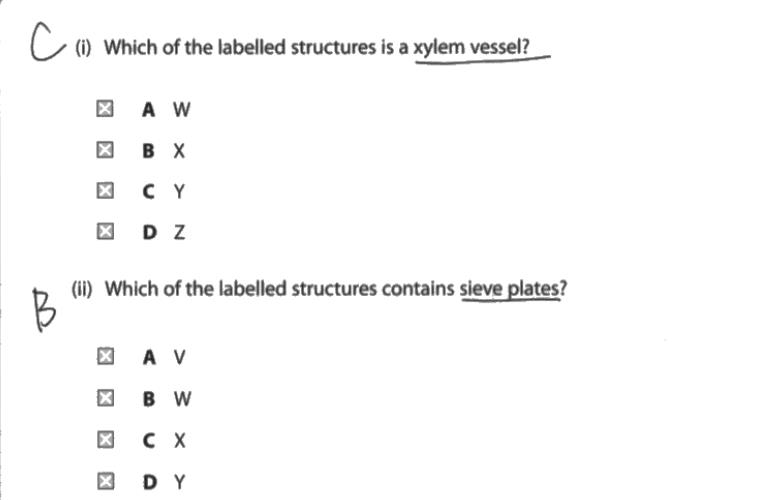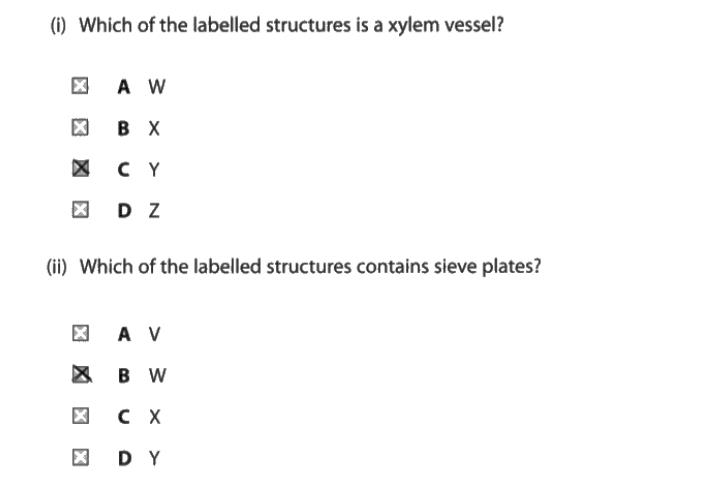International Science Qualification News March 2025
This update is for teachers of International GCSE and International A Level courses in biology, chemistry, physics and science.
If you would like to discuss any of these matters, or any other aspect of course delivery or assessment, please do use the link below to book a Teams call with me or email teachingscience@pearson.com.
If you use Facebook, then look out for an update in the near future advertising the launch of a new Facebook group for teachers of Edexcel international science qualifications - this will be linked to our new Facebook page (see link below). We also have a link below to our community group for international science - another place where you can ask questions and connect with other teachers.
Best wishes,
Tim Lawrence
Pearson Edexcel Subject Advisor for International Science Qualifications
In this update:
- Key dates
- International GCSE science equation sheet FAQs
- Multiple choice questions - guidance for candidates
- International A Level chemistry - response to new research findings
- International A Level biology - pre-release article
- International GCSE science - free Maths in Science worksheets
- Training available - on-demand and future live events
| 5 March | January 2025 IAL results to centres. |
| 6 March | January 2025 IAL results to candidates. |
| 13 March | January 2025 IAL examiner reports released to teachers with EOL logins one week after results day. |
| 21 March | Entry deadline for International GCSE and International A Level for May/June 2025 exams to avoid late fees. |
| 22 April | 'Late fees' (double fees) for May/June 2025 exam entries become 'higher late fees' (triple fees). |
| 14 August | International A Level results to candidates. |
| 21 August | International GCSE results to candidates. |
See below for answers to frequently asked questions about the provision of additional equation sheets for International GCSE physics exams, including for Double Award and Single Award science.
An additional equation / formula sheet will be provided for all physics exams in 2025, 2026 and 2027 (this is following the support announced for UK GCSE candidates announced by the UK Government).
This applies to candidates taking International GCSE physics (linear and modular routes), Double Award science (linear and modular - but only the physics exam papers), and Single Award science (again, only for the physics exam).
For the linear qualifications, the 2025 versions of the sheets (which have the same content as those issued in 2024) are available to download now from the qualification web pages. Versions for the modular exams will be uploaded shortly, but as these will have the same content teachers running mock exams or other practice assessments are advised to use the linear sheets.
For Edexcel International GCSE exams our policy is to provide the same support that is provided to candidates sitting UK GCSE exams. The provision of equation sheets for UK GCSE exams is a decision taken by the UK Government's Department for Education and qualifications regulator Ofqual. When exams resumed in 2022 following two years of disruption due to Covid-19, they took the decision to introduce equation sheets for GCSE maths and physics exams only. The same support for these exams has been extended now until at least 2027 exams. Equation sheets have not been issued to UK GCSE candidates sitting chemistry or biology exams, and therefore we have not produced these for International GCSE exams in these subjects.
International GCSE and International A Level exams in the sciences feature multiple choice questions, and candidates need to respond by placing a cross in a box. The following instructions appear before the first question on the paper.

Teachers may wish to stress to their students that these questions are marked by computer rather than by an examiner - if they do not place a cross in the box, but instead draw a circle around it, a tick next to it, or write the letter of the correct response, their answer will not be registered. Below is an example of a candidate response which would not be marked. It may be helpful to hold back marks for correct answers given using an incorrect method in mock exams.

Below is an example of a correctly answered question.

The Royal Society of Chemistry have recently published research which suggests a need for reconsidering explanations based on inductive effects of alkyl groups - Mark C Elliott et al, Journal of Organic and Biomolecular Chemistry, Issue 2, 2025.
Read the email to IAL chemistry centres regarding the RSC published research
As this email explains, there is no need to adapt your teaching in response to these findings, and candidate responses to exam questions which make use of the inductive effect as it is described in many textbooks will continue to receive full credit. Mark schemes will be updated for future exams however, so that well-read students familiar with the new findings are credited for this knowledge too.
If you are interested in finding out more, a blog by Mark Elliott on 'What Does the Change in Direction of Alkyl Group Inductive Effects Mean?' is available on the link below.
For IAL biology unit 5 (WBI15) candidates have questions on a scientific article which is pre-released six to eight weeks before the exam. This can be downloaded by teachers with an Edexcel Online login from the teaching and learning materials section of the qualification web page - see the link below.
Students can annotate a copy of the article as part of their preparation for the exam, but cannot take this version into the exam. They will be provided with a 'clean' copy with their exam paper.
The article for the May/June exam series is usually published on 18 March or close to this date.
In case any International GCSE science teachers have yet to see these resources that were published last December, we now have free Maths in Science worksheets available on the 'teaching and learning materials' pages of each qualification.
The Pearson Development Academy website is the place to look for upcoming and on-demand training events, including face-to-face events. The links below will take you to filtered lists for International GCSE and International A Level training respectively. There are a number of events coming up in March 2025 but you may need to 'scroll past' more recently posted events running in September and October to find them.
Below are links to YouTube playlists featuring recordings of past online training events and 'on-demand' training. Those recent recordings which use exam materials from the past 12 months do not feature in these public playlists however. Teachers with Edexcel Online logins can access these by going to the relevant qualification web page, then looking in 'past training content' on the 'teaching and learning materials' page. Locked documents with links to unlisted videos of the recent training can be found there.
Subject advisor
Irine Muhiuddin and Tim Lawrence
UK and International Science

